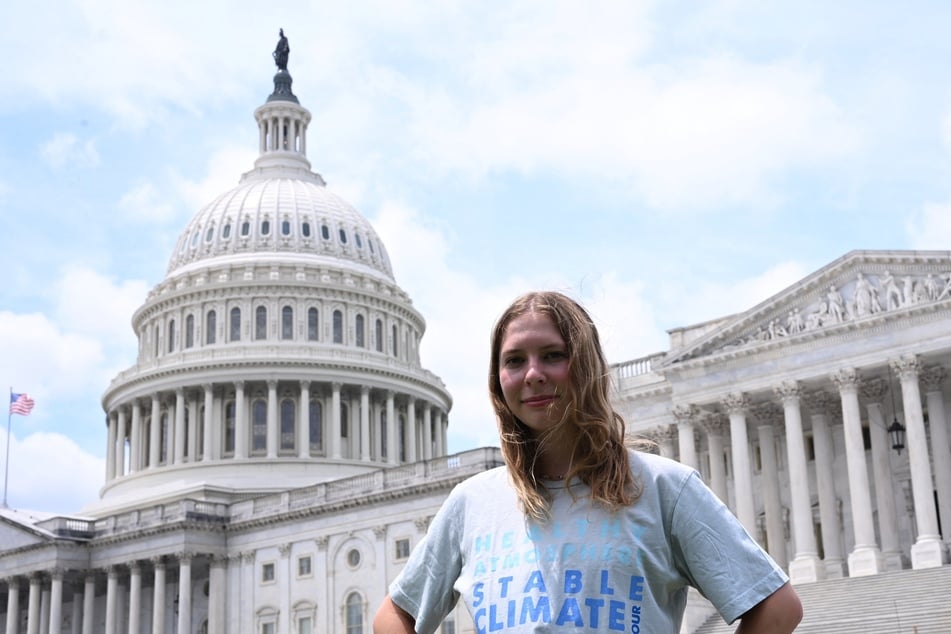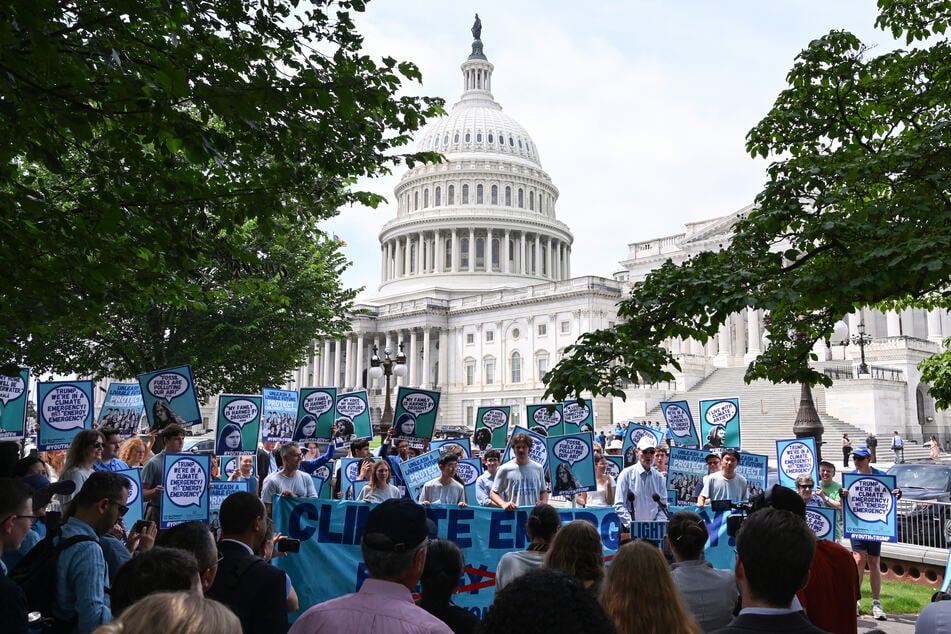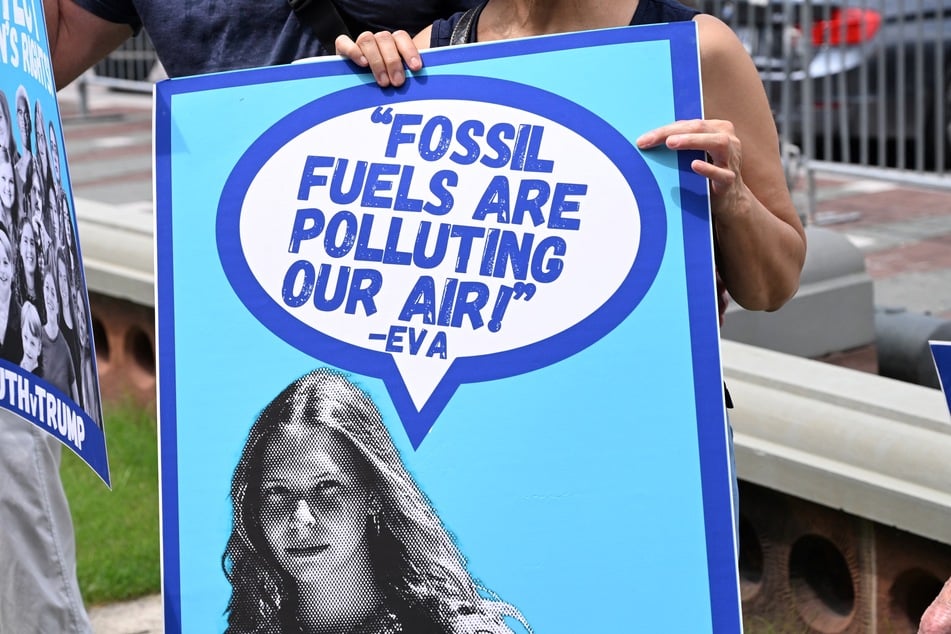Federal court to decide if climate collapse is "unconstitutional" in youth lawsuit against Trump
Missoula, Montana - Is "drill, baby, drill" compatible with "life, liberty, and the pursuit of happiness"?

That's the question a federal judge in Montana will weigh this September, as a group of young Americans sues the Trump administration – arguing its aggressive fossil fuel agenda is not only accelerating climate change but also violating their constitutional rights.
Courts worldwide are emerging as tools for driving climate action against political inertia, with the International Court of Justice set to deliver a landmark ruling Wednesday.
"It's very intimidating to think about my future," lead plaintiff Eva Lighthiser told AFP during a recent protest outside Congress, where she and other youth plaintiffs were joined by Democratic lawmakers.
"The climate is very unreliable, it's destabilized, and it's going to get worse – and that is a lot to reconcile with as somebody who's just entering adulthood," said the 19-year-old from Livingston, Montana.
Their case, Lighthiser v. Trump, is among the most high-profile in a new wave of US climate litigation. It hinges on the Fifth Amendment's Due Process Clause, which prohibits the government from depriving people of fundamental rights without due process of law.
Twenty-two young plaintiffs – including several minors – are represented by the nonprofit Our Children's Trust. They are aiming to build on two recent state-level wins.
In 2023, a Montana judge sided with youth plaintiffs who argued the state's failure to consider climate impacts when issuing oil and gas permits violated their right to a clean environment.
A year later in Hawaii, young activists reached a settlement to accelerate decarbonization of the transport sector.
Plaintiffs experience wildfires, floods, and anxiety

Now, they're targeting President Donald Trump's second-term executive orders, which declared a "National Energy Emergency."
Trump directed agencies to "unleash" fossil fuel production while stalling clean energy projects.
The suit also alleges the administration unlawfully suppressed public access to federal climate science.
Mat Dos Santos, general counsel for Our Children's Trust, told AFP the conservative-dominated Supreme Court has shown willingness to hear "right to life" cases.
"We're trying to make sure that the right to life really extends to living children," they said, "and that it means you have the right to enjoy your planetary existence."
In an unusual move, 19 state attorneys general led by Montana have filed to intervene on behalf of the Trump administration – a sign of how seriously the case is being taken, said Dos Santos.
"Growing up in rural Montana, there's a lot of emphasis on our natural surroundings," said Lighthiser. Smoke-choked skies, relentless floods, and her family's climate-forced relocation have shaped her life.
Lighthiser plans to study environmental science and says she struggles with anxiety and depression – common among the plaintiffs AFP interviewed.
Joseph Lee, a 19-year-old student at UC San Diego, said the threat of climate disaster has made him question whether he should start a family.
Raised near an oil refinery in California, he suffered severe asthma as a child. His family briefly moved to North Carolina to escape the pollution, only to face worsening flash floods.
Patrick Parenteau, an emeritus environmental law professor at Vermont Law School, said the case draws on the same constitutional logic as rulings on interracial marriage, desegregation, and – until recently – abortion rights. But while he supports it in principle, he doubts it will succeed.
Plantiffs face an "uphill battle" in the courts

Judge Dana Christensen, who will hear the case September 16–17, has issued environmentally friendly rulings before. But even if he sides with the plaintiffs, the case is likely to be appealed all the way to the Supreme Court.
"I think the plaintiffs understand that's an uphill battle, certainly with the Supreme Court we have," Parenteau said. "But the point is, they need to try."
Other scholars are less sympathetic. Jonathan Adler, a law professor at William & Mary, dismisses such efforts as more geared toward public opinion than legal victory.
Lighthiser v. Trump is "based on a very expansive and unmoored theory of what the power of federal courts is," Adler told AFP, calling it ungrounded in legal doctrine.
He said more viable strategies include suing agencies over specific regulations or filing tort claims against polluters – not sweeping constitutional challenges.
"Climate change is a serious problem, and we should be doing more about it," Adler said. "But the sorts of legal strategies in court that are most viable aren't the sorts of things that are tailored for attention."
Cover photo: ALEX WROBLEWSKI / AFP
